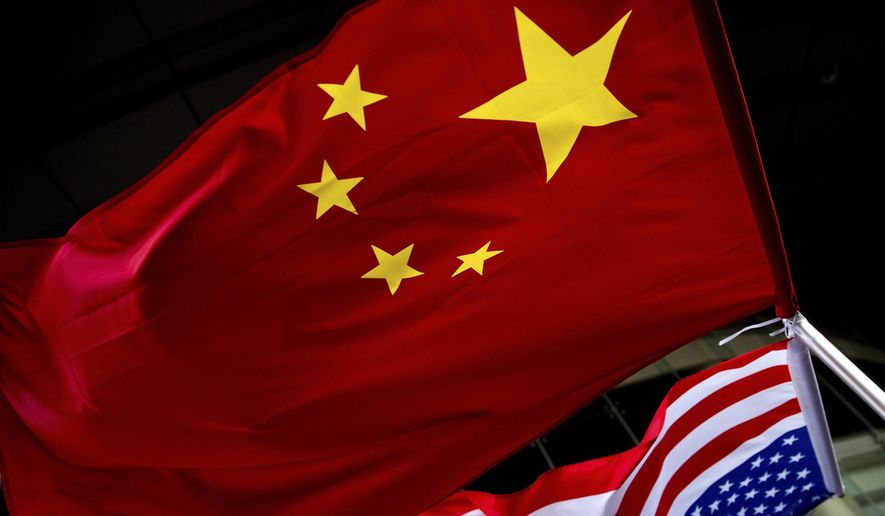Army Gen. Paul M. Nakasone left the helm of the National Security Agency in February with concerns about two emergent threats: Chinese meddling in U.S. elections and deepfakes generated by ever-more-powerful artificial intelligence systems.
Speaking with reporters at the Mayflower Hotel in Washington this week, the retired general said that “both of those issues really are nonissues to me.”
The six-year leader of NSA and U.S. Cyber Command mobilized the Election Security Group last year to combat foreign threats because of concerns about Beijing’s capabilities to cause digital chaos.
Gen. Nakasone sounded confident Monday evening that meddling in the presidential election would be “too high a risk” for China’s communist regime.
“I think we saw this in ’22, where it was very specific elections that they would get involved, but the broad-base influence operations that we’re very familiar with — with regards to Russia or even Iran — that’s not their game,” Gen. Nakasone said.
The retired general closely tracks threats from China and AI as the founder of Vanderbilt University’s Institute of National Security and a board member of artificial intelligence pioneer OpenAI.
Working in the private sector, he found that U.S. adversaries were not using AI as some officials anticipated. Gen. Nakasone said adversaries’ use of OpenAI’s ChatGPT is not having an impact.
Still, he is not letting down his guard on Chinese cyberattackers.
When asked about China’s Typhoon hacking groups, Gen. Nakasone told The Washington Times that he intends for his Vanderbilt institute to help support the community of partners the U.S. government needs to thwart cyberattackers’ advances.
He is dissatisfied with the U.S. response to Volt Typhoon and Salt Typhoon hacks, which U.S. officials said infiltrated critical systems for future sabotage and burrowed into telecommunications networks to gather intelligence.
“I am not pleased in terms of where we’re at with either of the Typhoons,” Gen. Nakasone said. “And I think that this is a tremendous challenge that we have for our nation.”
He said he wants to train new national security professionals who fully understand influence operations, including the technical aspects, to help academia, industry and government defend against cyberattacks.
As NSA director traveling to Boston, Texas or the West Coast, Gen. Nakasone said he was often twice the age of the technology professionals he encountered. In Washington, the general found he was one of the younger people working in national security.
He intends to bridge the age gap between the Beltway and the rest of the country by establishing a pipeline from Vanderbilt’s Nashville campus to Washington.
He kick-started that effort in Washington this week by hosting intelligence and defense officials alongside students to learn about the Institute of National Security.
Retired Army Gen. Mark A. Milley, former chairman of the Joint Chiefs of Staff, accompanied Gen. Nakasone and told attendees that the institute would help train leaders to prevent war.
Reflecting on various hot spots for potential conflict between great powers, Gen. Milley said China is not imminent or inevitable but its probability could increase if national security officials are not careful.
On Tuesday, the U.S. intelligence community said China is one of at least three adversaries with the “technical capability to access some U.S. election-related networks and systems.”
The others are Russia and Iran. Intelligence officials say these adversaries are considering aggressive influence operations that could lead to physical violence before and after Election Day on Nov. 5.
The intelligence community said in a memo declassified Monday that it doubts the foreign actors will try to alter vote counts because of the risk of detection and retaliation and the lack of indication of previous interference efforts.
In a separate election security update on Tuesday, the intelligence community said it anticipates Chinese influence operations in the postelection period that will be quickly tailored to events.
• Ryan Lovelace can be reached at rlovelace@washingtontimes.com.




Please read our comment policy before commenting.